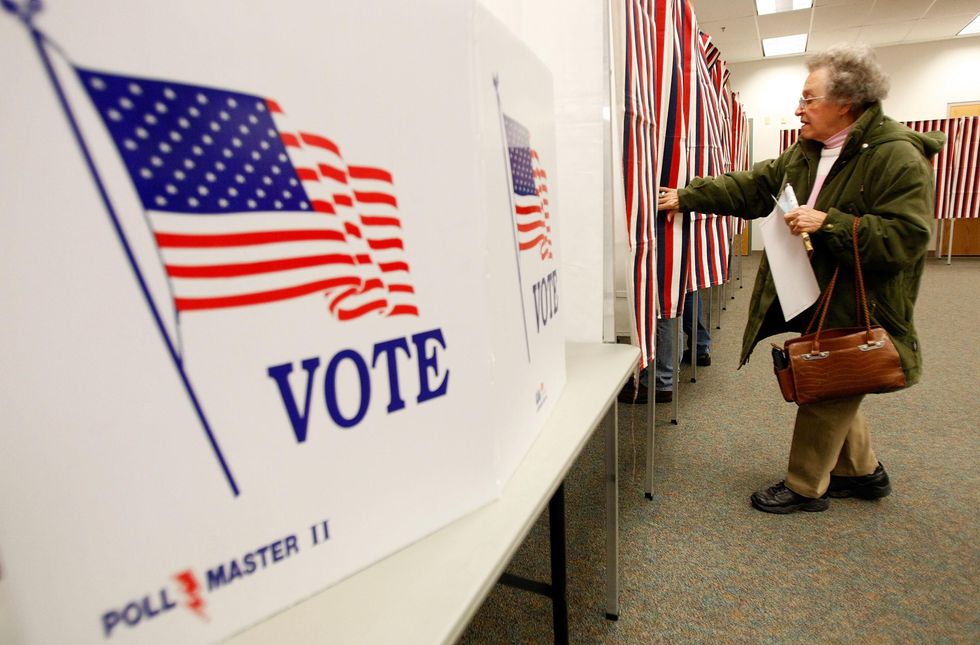
In a 5-4 decision, the Supreme Court ruled in favor of Ohio's aggressive voter purge method on Monday. The court said Ohio's method did not violate federal law, the central question in the case. (Win McNamee/Getty Images)

The Supreme Court gave the state of Ohio a decisive victory Monday, ruling the state is allowed to aggressively purge seemingly inactive voters from voting rolls — a practice civil rights groups have fought against.
The case was Husted v. A. Philip Randolph Institute.
In a 5-4 decision, with the more conservative justices voting in the majority, the court said Ohio's method did not violate federal law, the central question in the case.
Each state has a process for removing voters believed to have moved from its registration lists. However, according to the National Voter Registration Act, the act of not voting is not a legal reason for removal. States can remove only someone who requests it, moves, dies, is convicted of a felony, or becomes mentally "incapacitated."
This presented a problem for Ohio because the state utilizes one of the strictest removal methods in the country, according to NBC News. The state sends automatic notices to any registered voter who doesn't cast a vote during a two-year election cycle. If they don't vote over the next four years or return the notice, officials presume the voter has moved and drop them from voter rolls.
"This case presents a question of statutory interpretation, not a question of policy. We have no authority to second-guess Congress or to decide whether Ohio’s Supplemental Process is the ideal method for keeping its voting rolls up to date," Associate Justice Samuel Alito explained in the majority opinion.
"The only question before us is whether it violates federal law. It does not," he wrote. "Ohio simply treats the failure to return a notice and the failure to vote as evidence that a registrant has moved, not as a ground for removal. And in doing this, Ohio simply follows federal law."
The dissenters included Associate Justices Ruth Bader Ginsberg, Sonia Sotomayor, Stephen Breyer, and Elena Kagan. Breyer wrote the dissenting opinion.
In a concurring dissent, Sotomayer said the opinion of her conservative colleagues "entirely ignores the history of voter suppression against which the NVRA was enacted and upholds a program that appears to further the very disenfranchisement of minority and low-income voters that Congress set out to eradicate."
Responding to claims the court upheld a discriminatory process, Alito wrote: "The NVRA prohibits state programs that are discriminatory, but respondents did not assert a claim under that provision. And Justice Sotomayer has not pointed to any evidence in the record that Ohio instituted or has carried out its program with discriminatory intent."
The New York Times explains:
The case concerned Larry Harmon, a software engineer and Navy veteran who lives near Akron, Ohio. He voted in the 2004 and 2008 presidential elections but did not vote in 2012, saying he was unimpressed by the candidates. He also sat out the midterm elections in 2010 and 2014.But in 2015, Mr. Harmon did want to vote against a ballot initiative to legalize marijuana and found that his name had been stricken from the voting rolls.
NBC News reported that at least a dozen Republican-majority states plan to adopt a roll purge practice similar to Ohio's.
Rick Hasen, an election law expert at UC-Irvine, told NBC: "You'll see more red states making it easier to drop people from the voter registration rolls."